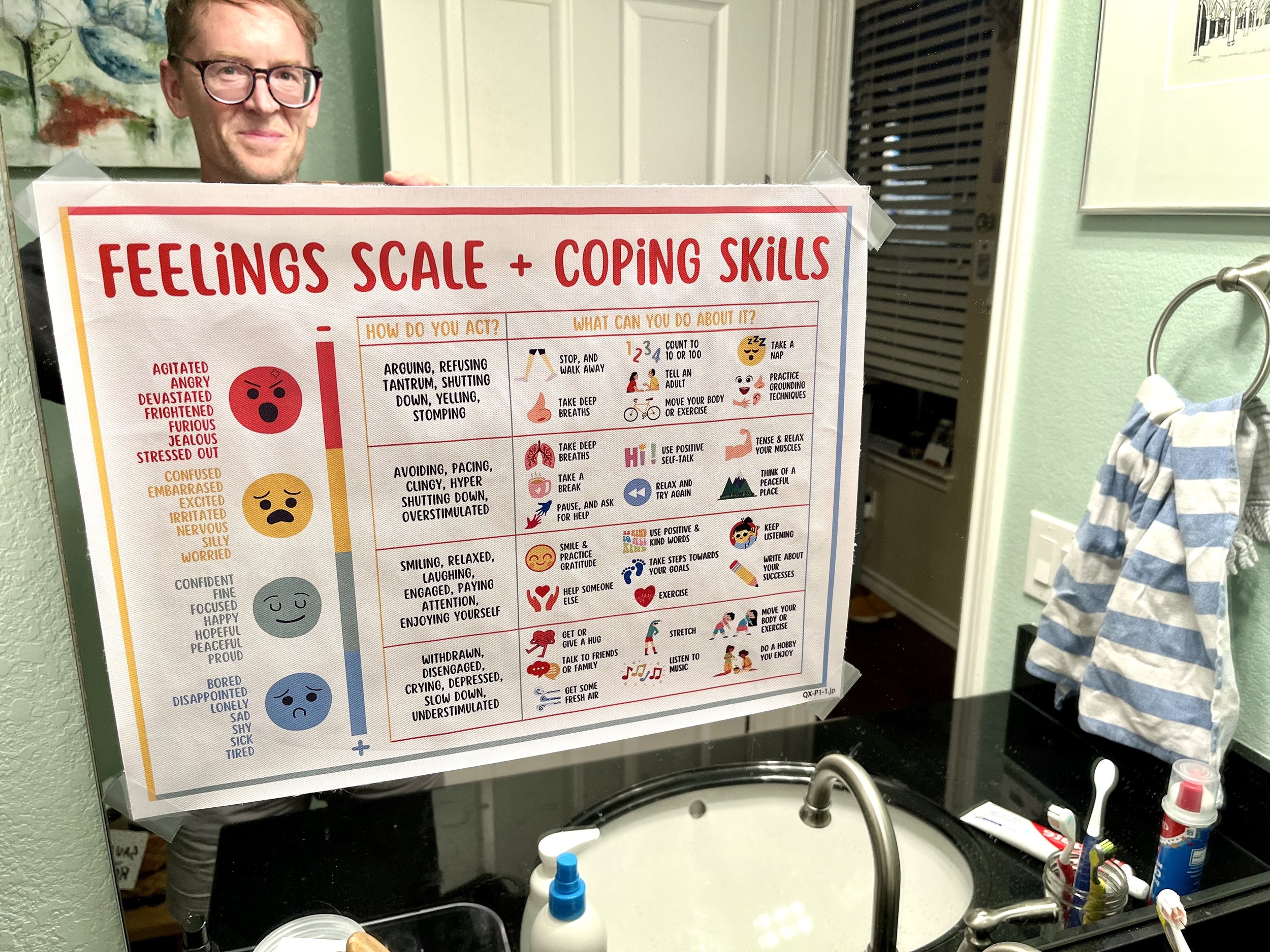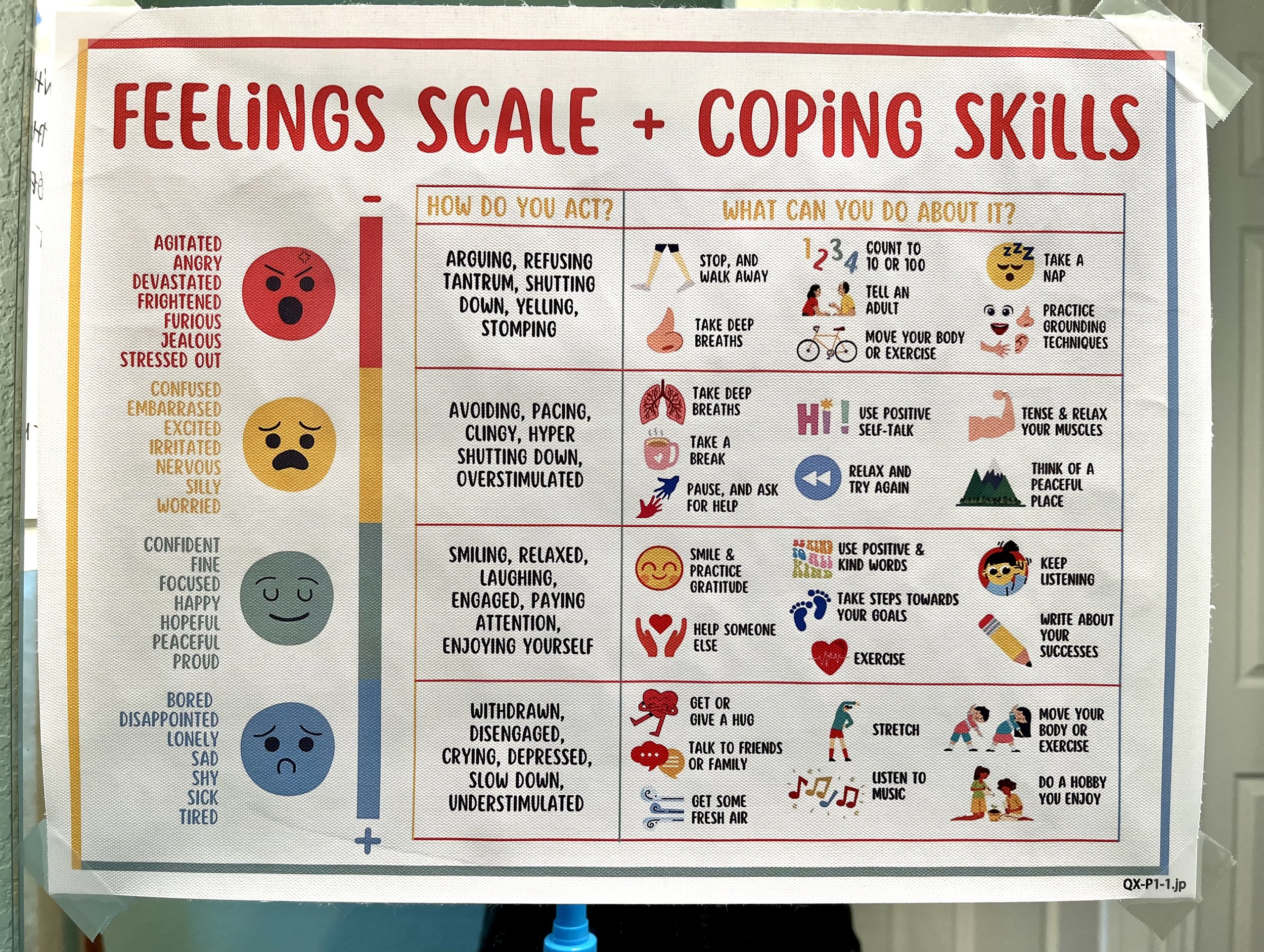A Feeling is a Feeling, No Matter How Small
This is a “feelings chart” that Phaedra bought for the kids this past week. Secretly, I think she bought for us.
It’s been a rough transition back to school. New night and morning routines, long days sitting at impossibly uncomfortable desks, lots of homework, and all sorts of helter-skelter emotions that make no sense to anybody.
But one of the things that we’ve tried to encourage our kids to do from an early age is to tell us how they feel without ever worrying that we’ll judge them or jump down their throats. (Always a temptation, Lord help us.)
Feelings are weird. They’re not wrong, of course, but they’re often weird and unpredictable and overwhelming and so-not-rational. But we don’t want our children to be afraid of them.
We also want to offer them tools to help them handle their feelings creatively—to have the experience, for instance, of being red-faced angry about something that makes no sense (to us, at least) but not to be utterly undone by their anger.
We likewise want them to understand how fundamentally bodily their feelings are, and how the way forward to maturity is also through the body. The body offers itself as a friend of emotional health and spiritual vitality.
Take a deep breath. Walk away. Count to ten. Ask for a hug. Take a nap (yes, Lord).
Or, in my case this past Tuesday, make ridiculous chicken sounds right before you drop off the kids at school because everybody, including daddy, was a super grumpy pants, and saying silly “cluck-clucks” was the only thing that could rescue us from the inexorable down-ward spiral.
This is something that I write about not only in my body book, but also in my psalms book.
Being honest about our emotions is the beginning of emotional health; handling them with intelligent care is, I suggest, the way to fullness of emotional health. But it’s always also a physical thing, and a communal thing, and a spiritual thing, because God cares a great deal about our hearts and bodies, not just our “souls.”
The goal isn’t a stiff upper lip or being “tough,” as if God were embarrassed by our feelings. Far from it. The goal is to be honest-to-God, and to each other, as difficult or seemingly impossible as that may feel.
God isn’t a stranger to our emotional worlds. In Christ he grieves, he weeps, he feels distressed and abandoned and misunderstood, and for that we thank God Almighty.
So whatever you’re feeling—agitated, confused, worried, bored, angry, sad—know that you’re not alone. Know also that your body is your friend; so is this chart; and so are we.

